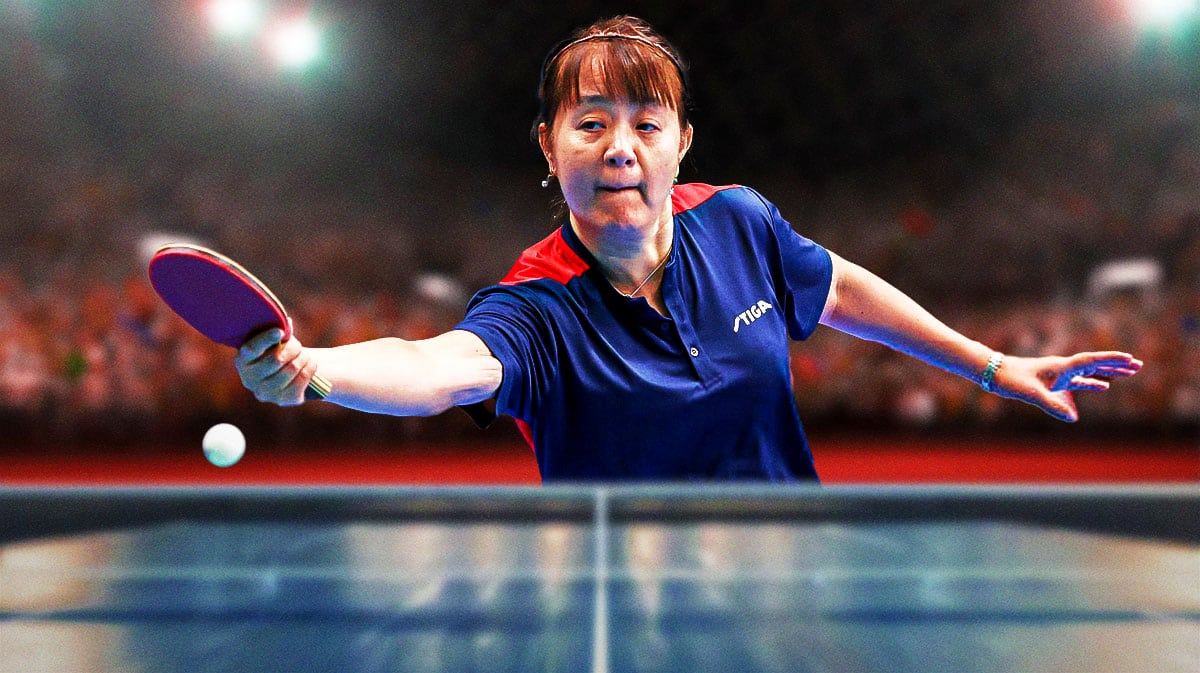Decisions haven't always been black and white for Chilean table tennis Olympian Zhiying Zeng — or black and… any other color for that matter. The Chinese-born table tennis prodigy's life was forever changed in 1986, two years before table tennis premiered as an Olympic sport at the Seoul summer games, when the Olympic committee introduced the “two color rule” for paddles.
Before this, both sides of the paddle could be black (or any single color), but after the rule change the two sides had to be different colors. It may sound like a simple cosmetic change but it drastically altered Zeng's game.
As Zeng elaborated to CNN, the two faces of the paddle produce differing effects on how the ball moves, and one of Zeng's key moves was rotating the paddle in her hand to confuse opponents. When paddles were forced to have two different colored faces, it allowed Zeng's opponents to better predict her shots.
Zeng was a rising table tennis star in China at the time, a national junior champion who turned pro by the age of 16 (after attending an elite sports academy). But the sudden rule change just ahead of the sport's Olympic introduction proved devastating for Zeng.
“The change of rules affected my game a lot,” Zeng admitted. “That’s when I had a big downturn and left the national team.”
This sent Zeng down a whole different life path, and led to her making a new home for herself on the other side of the world. Not to mention a new name — with Chileans struggling to pronounce the Z sound in her name, she started going by Tania.
In 1989 Zeng was offered a job coaching table tennis to school-aged kids in Arica, Chile and accepted. She loved the position, but didn't play competitively herself anymore for many years. She went on to get married and start a family in Chile, having two sons.
It wasn't until one of those sons turned 13 that she decided to return to the sport, and she did it for a very relatable and selfless parental reason — to keep her teenager active and off of screens!
When Zeng returned to competitive play, her skills quickly came back to her, and she won two national tournaments in the mid-2000s. However, much like Zeng did when she outgrew her mom's teaching as a child, Zeng's son went to train on his own and traveled with his team's coach — so Zeng again put down the paddle.
Cut to the Covid-19 pandemic, where Zhiying Zeng was trying to find a silver lining like so many of us — except, instead of making a sourdough starter, she got back to her table tennis roots. Why?
“More than anything, just to exercise because we weren’t doing anything locked down in the house except eating!” she joked.
“I got the bug and, once we were able to leave, I immediately wanted to play against someone to see what level I was at – and see if I could I still run or not,” she explained.
The verdict was a resounding yes, she could still run and did so all the way to the 2023 Pan American Games in Santiago, where she quickly became a fan-favorite in Chile.
After a clutch, come-from-behind win in the tournament, Chileans gave Zeng the nickname ‘Tia Tania' or Auntie Tania, and one young fan, according to the AP, called her the “table tennis grandma.”
The nickname stuck (never mind the fact that, although Zeng's two sons are now adults, she isn't a grandma). Zeng isn't mad at the moniker though. She says she “feels the affection” from fans who came up with it. “Plus, it’s possible to be a grandmother at 58!” she admits.
Alas, Zhiying ‘Tania' Zeng's Olympic journey came to an end at the Paris Games on Saturday when she lost in the preliminary round, but her inspiring life story is showing some serious staying power with fans across the globe.




















